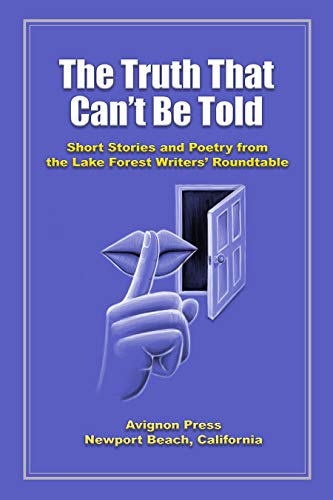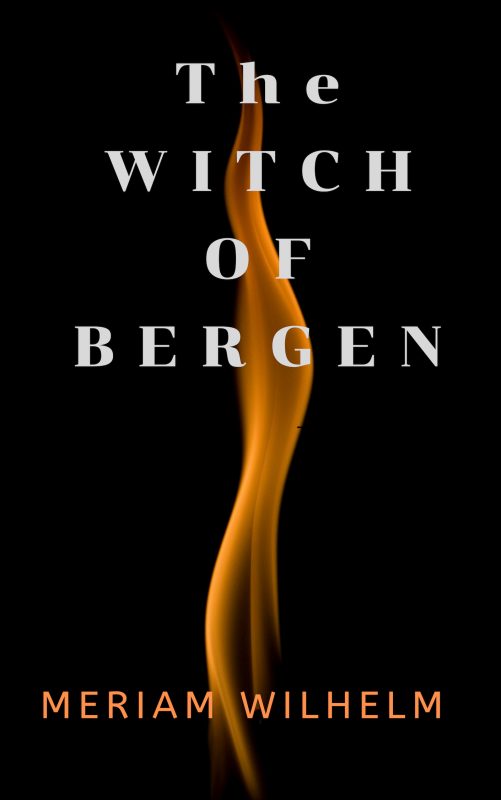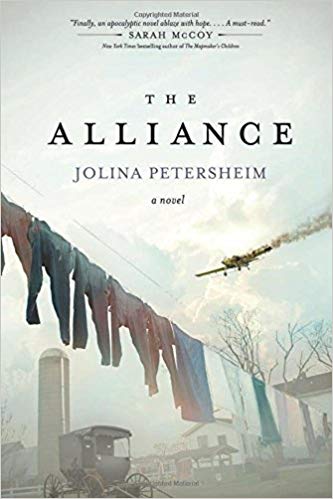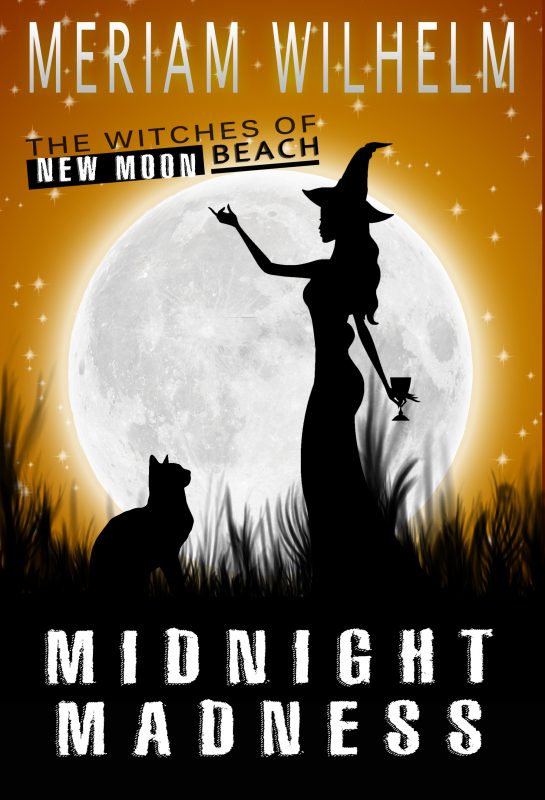My ‘Good Day’ Post about a scare in the air: a podcast series from Ulverscroft UK by Jina Bacarr
January 11, 2021 by Jina Bacarr in category Jina’s Book Chat tagged as Good Day, historical fiction, Library, Memories, podcast, podcasts, Ulverscroft, women's fiction, writing
My #AGoodDay #podcast is up today re: a scare I had up in the air years ago.
Thanks to @uLibraryDigital for producing these stories!
You can listen below and on the Ulverscroft page on Spotify. https://open.spotify.com/episode/07cHfvk7h59dfewTRVxNO7?si=u26TNw4XQVWqZEDq-dW1jA
————
0 0 Read more
AUTHOR RECOVERY
January 5, 2021 by Tracy Reed in category Pink Pad by Tracy Reed tagged as Planning, promotion, series, tracy read, writing
Happy New Year. I hope you had a wonderful holiday.
This morning I woke up to a daunting historical fact. Five years ago, I made a rather strange decision or idea to publish a title a month for a year. I’ve spoken about this project several times over the past years. When I set out to do it, I had one main reason, to sell more books.
I heard the best way to gain readers and sell more books was to write more books. I also heard it was easier to do advertising with more than one book.
When 2016 started I had one full-length novel, a novella and a novelette. What I didn’t have was a completed series, or at least a duet. I now know that was a big mistake. If I were to ever do another challenge like that, it would center around one series.
I have learned a lot about writing and publishing books. I think I finally have a handle on my writing style and what my readers expect from me. I write books that aren’t necessarily written to market. In my books someone is always wrestling with their feelings, raging hormones and how they mix with their faith. I like to hook my reader with something a little sweet and sassy so they can get to know the characters. The heat levels grow as the series progresses. In my writing world, the characters need to read like real people. It should feel like you’re reading about someone the reader would actually know.
I have three series and two duets I need to tie up. I’m not saying I’m going to tie up all of these collections this year, but I’m going to try.
I’m also guilty of using cliffhangers…another thing I tried to sell books. I think it would have been successful if I’d immediately released the next book in the series.
Last year I didn’t release a book and my sales suffered as a result. What did I learn from this…no new book and a lack of marketing my backlist leads to no money. I did however, participate in some incredible free promotions which gave me awesome results. My book Unexpected Love was #1 in one of my categories on Amazon US and UK for three days. I was on the roof. Both of my other books peaked in the top ten of their categories.
These promotions yielded several thousand downloads and sales which I loved.
I take responsibility for my low sales, because I failed to do adequate marketing and advertising. I refuse to kick myself for not sticking to my production schedule. I was distracted by a little thing called COVID-19.
So what is my plan for this year? I’m not quite sure. I know I’ll be releasing a book in February. My goal is to release the next in that series approximately three months later. I’ll also be releasing new covers for my Alex series as well as another book.
The other thing on my list is the follow up to Unexpected Love. I have the cover, title and eleven thousand words. Seeing several free copies have been downloaded and it ends in a cliffhanger, I need to release the follow up asap.
Before I start any writing plan for 2021, I’m going to take a few days, clear my head and make a reachable and achievable plan.
So what’s your author plan for 2021?
~Tracy
Books by Tracy Read
0 0 Read more
Dear Extra Squeeze Team, Is My Blurb Too Long . . . Help?
December 31, 2020 by The Extra Squeeze in category The Extra Squeeze by The Extra Squeeze Team tagged as back cover copy, book blurb, description, The Extra Squeeze Team, writing
Dear Extra Squeeze Team, I am afraid I am telling too much in my book description; it is really long, and I don’t know how to shut up…how do I make it concise?
Robin Blakely
PR/Business Development coach for writers and artists; CEO, Creative Center of America; member, Forbes Coaches Council.
If you think you are telling too much, you probably are. Likely, you are caught up in the literal play-by-play of the work, rather than the essence of the story that makes the reader want to read. One way to make the description shorter and more interesting is to step away from the task completely for a bit. Ask readers of the manuscript to send you their descriptions. Acquire three or four descriptions and blend those descriptions. Try not to get too emotionally caught up in the story of the story. Remember: this is about coaxing readers to read, not writing a book report to prove you know what happened.
H.O. Charles
Cover designer and author of the fantasy series, The Fireblade Array
Start with the pieces you want to keep, so that it makes sense, and strip out everything else. Too much description? Too many adjectives? Look at bestseller summaries and take some inspiration from their structure. They will have had whole teams to work on theirs, so don’t worry if it takes you a while to get it right.

Jenny Jensen
Developmental editor who has worked for twenty plus years with new and established authors of both fiction and non-fiction, traditional and indie.
A good book description works more like a lure than a synopsis. Intricate descriptions of ‘what happens’ is too much tell, so don’t give away the story. Try dangling the promise of a great read by hitting the plot highlights as they happen on your dramatic arc — and then leave it dangling before you hit the denouement.
If you pare it down to just those points that support and move the plot — this could be characters, the problem, the compelling idea — and make the tone fit the story — eerie for horror, soft for romance, brittle for a thriller, punchy for humor — it makes the task more manageable.
A book description is not the condensed version; it’s an opportunity to tantalize and intrigue a reader with what makes your story irresistible.

Rebecca Forster
USA Today Bestselling author of 35 books, including the Witness series and the new Finn O’Brien series.
My gut is my favorite writing tool, too. Kudos on recognizing something is wrong. Regarding blurbs, I have taken a lesson from my friends who write scripts and I start with a logline. This is one sentence that lays out the hero, the goal, and the challenge the hero faces.
This is a story about a woman determined to save her family from the ravages of the Civil War no matter what the personal cost.
That is Gone with The Wind in one sentence. Once you have your log line, build on it. Use active words, dramatic words, and draw the reader into the story and stop before you give it away. This is the one piece of writing you should edit, and edit, and edit, and then edit one more time. Blurb writing is a craft to be honed.

Ever wonder what industry professionals think about the issues that can really impact our careers? Each month The Extra Squeeze features a fresh topic related to books and publishing.
Amazon mover and shaker Rebecca Forster and her handpicked team of book professionals offer frank responses from the POV of each of their specialties — Writing, Editing, PR/Biz Development, and Cover Design.
If you have a question for The Extra Squeeze Team, use our handy dandy contact form.
IT’S A WONDERFUL LIFE: For a 98-Year-Old Author
December 15, 2020 by Rebecca Forster in category The Write Life by Rebecca Forster, Writing tagged as Authors, love story, romance, writingI love this time of year. Christmas. All the scurrying about, sending out cards, decorating our houses, shopping, cooking, baking —you know what I’m talking about. But what I really love is watching television, specifically watching Miracle on 34th Street and It’s a Wonderful Life. These are love stories told with a sprinkle of stardust, a sense that magical things can and do happen, all within the context of real life. After watching these movies, I am convinced there are happily-ever-after’s despite the everyday muck. There is nothing our heroes can’t overcome. You root for them through their trials and your heart bursts with their triumphs.
Which brings me to my new favorite Christmas story: Eternal Love by Louis Moore.
 This book is really a long short story. The man who wrote it, Louis Moore, is ninety-eight years old. He is a Chinese-American gentleman who wanted to honor his late Japanese-American wife, Nellie, by writing their love story. I heard about this book in a round about way. It sounded very sweet, very nice, but I really didn’t have the time to read—I was working on my own book. But then I learned that what this book was about: Mr. Moore’s 74 years of marriage to a woman he adored. It just so happened I was celebrating my 44th year of marriage to a man I adore. So, instead of spending a couple of hours with Jimmy Stewart and Donna Reed in It’s a Wonderful Life, or working on my own book, I sat down with Eternal Love and read about a love story for the ages.
This book is really a long short story. The man who wrote it, Louis Moore, is ninety-eight years old. He is a Chinese-American gentleman who wanted to honor his late Japanese-American wife, Nellie, by writing their love story. I heard about this book in a round about way. It sounded very sweet, very nice, but I really didn’t have the time to read—I was working on my own book. But then I learned that what this book was about: Mr. Moore’s 74 years of marriage to a woman he adored. It just so happened I was celebrating my 44th year of marriage to a man I adore. So, instead of spending a couple of hours with Jimmy Stewart and Donna Reed in It’s a Wonderful Life, or working on my own book, I sat down with Eternal Love and read about a love story for the ages.
Lou and his wife faced prejudice on many fronts, rejection from his family. They built businesses and lost them, they moved more than once, they had professional set-backs, and Lou sometimes wondered if he had the ‘right stuff’ to succeed. Throughout the telling of this story, Mr. Moore shines a light on his wife with the wonder of a man truly, deeply in love. He writes about Nellie’s good humor, the kindness she showed to everyone who crossed her path, her intelligence, her beauty, and, the greatest gift of all, the love she had for him and the confidence she gave him.
 What I am sure the author doesn’t know is that in the telling of Nellie’s story, Louis Moore revealed himself to be a man of manners, a hard worker, a man who got up even if he was pushed down. Above all, he was devoted to his wife and loved her beyond reason.
What I am sure the author doesn’t know is that in the telling of Nellie’s story, Louis Moore revealed himself to be a man of manners, a hard worker, a man who got up even if he was pushed down. Above all, he was devoted to his wife and loved her beyond reason.
This book was shiny and bright because every word was chosen with care, every thought, observation, and aside moved the story ahead with purpose. Eternal Love was like opening a Christmas present I will use all year long. I will remember to write to my story, I’ll remember to write with verve, and I will remember—if I ever find myself peeved at my husband—to follow Louis Moore’s advice for a happy marriage. Be kind, be courageous, have eyes for no one else but your spouse because together you can accomplish anything.
Thank you, Mr. Moore, for a wonderful story of love written just in time for Christmas. Eternal Love is magical.
I’d like to give you a special Christmas present too. Check out my December newsletter for your FREE BOOK, the best recipe for Oreo pie and some other fun stuff. Wishing you all the best of the season.
Christmas Memories… and how they become the stories we love to write by Jina Bacarr
December 11, 2020 by Jina Bacarr in category Jina’s Book Chat tagged as Christmas, historical fiction, Itaaly, Memories, women's fiction, World War 2, writing
Ah, the magic of Christmases past… even those we want to forget…
Like spending an hour hanging up Christmas tree lights that don’t work when you plug them in.
Or imbibing in two much spicy eggnog at the office party while wearing a tipsy Santa hat… and then seeing your grinning face splashed all over social media.
Or digging through your closet for your favorite red Christmas dress to impress the new man in your life and you find out it doesn’t fit anymore.
Not our best holiday memories and ones we’d rather forget. But what about the holiday moments that make our eyes misty no matter how many years go by?
Memories of Christmases past race through our heads like sugar plum fairies on a triathlon this time of year… for me, I’ve turned three of them into Christmas stories that turn back the clock.
————
When I was stationed in Livorno, Italy, I worked in the US Army Service Club and every Christmas we hosted an event for the soldiers with the nuns and little boys from the local orphanage. I never forgot how the soldiers and little Italian boys had such a great time even though they didn’t speak the same language… except they did.
The spirit of Christmas.
I wanted to capture that lovely day in a story about a US Army captain in Italy during World War 2 who gets lost on the road to Rome right before Christmas Eve. He ends up helping out a beautiful nun and her charge of little boys and saves them from the Nazis.
If you like WW 2 romance, check out my holiday novella that takes place on Christmas Eve during the cold winter of 1943: A Soldier’s Italian Christmas.
December 1943 Italy
He is a US Army captain, a battle-weary soldier who has lost his faith.
She is a nun, her life dedicated to God.
Together they are going to commit an act the civilized world will not tolerate.
They are about to fall in love.
—————–
I was only six years old when I attended a strict parochial school behind a big iron gate in Philadelphia… at Christmastime, the nuns took us to see Santa Claus at Wanamaker’s department store, but we had to pass by the ‘poor house’ – an old limestone building with broken windows and no trees. Lost souls squatting. We gave them packages of food and the sisters told us kids we’d end up there if we didn’t learn our Catechism lessons.
It scared the heck out of me.
Years later when I saw ‘A Christmas Carol’ on TV and got a glimpse of Scrooge threatening to send the hungry and poor to a workhouse, I remember the nun’s warning.
I wanted to write my own version of Scrooge, but I fantasized him more like a tortured, romantic hero, so I created Nick Radnor… handsome, brilliant… and with a smartphone.
Meet him in ‘A Naughty Christmas Carol.’
And one so close to my heart…
I grew up hearing my dad’s stories about how he met my mom during the war… the red coat she wore when she saw him off at the train station… the letters they wrote to each other. The strong feelings of hope and love that kept everybody’s spirits up till the soldiers came home.
When I wrote Christmas Once Again about a woman who goes back in time to save the man she loves, I drew upon those memories, especially for my heroine’s mother. Kate’s strong bond with Ma, her need to see her again (she lost her mother before the book opens), also reflects my desire to see my mom.
My mother passed away a few days before Christmas many years ago…
So, when I talk about Christmas Once Again, you’ll understand the joy and poignant feelings racing through me when I wrote those scenes when my heroine reconnects with her mother once again… if only for a little while.
———
What are your most emotional Christmas memories?
Merry Christmas and Happy Holidays, everyone!
Jina
0 0 Read moreAffiliate Links
A Slice of Orange is an affiliate with some of the booksellers listed on this website, including Barnes & Nobel, Books A Million, iBooks, Kobo, and Smashwords. This means A Slice of Orange may earn a small advertising fee from sales made through the links used on this website. There are reminders of these affiliate links on the pages for individual books.
Search A Slice of Orange
Find a Column
Archives
Featured Books
THE TRUTH THAT CAN’T BE TOLD BOOK 1
Secrets abound. Everyone has them.
More info →THE WITCH OF BERGEN
Travel back through time with Carynn Cinnamon as she embraces romance, witchery, mystery, and joy
More info →THE ALLIANCE
When Leora Ebersole sees the small plane crash in her Old Order Mennonite community, she has no idea it's a foreshadowing of things to come.
More info →GIRLFRIENDS & SECRETS
Alexandra “Alex” Miller and her best friends are more like sisters. They live by the code that a good girlfriend will stick by you and be honest with you not matter what.
More info →MIDNIGHT MADNESS
As if Olivia Merriman doesn’t have enough to do in her beloved town of New Moon Beach, now her grouchy great-grandmother has recruited her to head up their coven of witches; her sisters are miffed, the coven is pushing her to accept the job, and to top it all off an evil wizard is messing with her love life.
More info →Newsletter
Contributing Authors
Search A Slice of Orange
Find a Column
Archives
Authors in the Bookstore
- A. E. Decker
- A. J. Scudiere
- A.J. Sidransky
- A.M. Roark
- Abby Collette
- Alanna Lucus
- Albert Marrin
- Alice Duncan
- Alina K. Field
- Alison Green Myers
- Andi Lawrencovna
- Andrew C Raiford
- Angela Pryce
- Aviva Vaughn
- Barbara Ankrum
- Bethlehem Writers Group, LLC
- Carol L. Wright
- Celeste Barclay
- Christina Alexandra
- Christopher D. Ochs
- Claire Davon
- Claire Naden
- Courtnee Turner Hoyle
- Courtney Annicchiarico
- D. Lieber
- Daniel V. Meier Jr.
- Debra Dixon
- Debra H. Goldstein
- Debra Holland
- Dee Ann Palmer
- Denise M. Colby
- Diane Benefiel
- Diane Sismour
- Dianna Sinovic
- DT Krippene
- E.B. Dawson
- Emilie Dallaire
- Emily Brightwell
- Emily PW Murphy
- Fae Rowen
- Faith L. Justice
- Frances Amati
- Geralyn Corcillo
- Glynnis Campbell
- Greg Jolley
- H. O. Charles
- Jaclyn Roché
- Jacqueline Diamond
- Janet Lynn and Will Zeilinger
- Jaya Mehta
- Jeannine Atkins
- Jeff Baird
- Jenna Barwin
- Jenne Kern
- Jennifer D. Bokal
- Jennifer Lyon
- Jerome W. McFadden
- Jill Piscitello
- Jina Bacarr
- Jo A. Hiestand
- Jodi Bogert
- Jolina Petersheim
- Jonathan Maberry
- Joy Allyson
- Judy Duarte
- Justin Murphy
- Justine Davis
- Kat Martin
- Kidd Wadsworth
- Kitty Bucholtz
- Kristy Tate
- Larry Deibert
- Larry Hamilton
- Laura Drake
- Laurie Stevens
- Leslie Knowles
- Li-Ying Lundquist
- Linda Carroll-Bradd
- Linda Lappin
- Linda McLaughlin
- Linda O. Johnston
- Lisa Preston
- Lolo Paige
- Loran Holt
- Lynette M. Burrows
- Lyssa Kay Adams
- Madeline Ash
- Margarita Engle
- Marguerite Quantaine
- Marianne H. Donley
- Mary Castillo
- Maureen Klovers
- Megan Haskell
- Melanie Waterbury
- Melisa Rivero
- Melissa Chambers
- Melodie Winawer
- Meriam Wilhelm
- Mikel J. Wilson
- Mindy Neff
- Monica McCabe
- Nancy Brashear
- Neetu Malik
- Nikki Prince
- Once Upon Anthologies
- Paula Gail Benson
- Penny Reid
- Peter J Barbour
- Priscilla Oliveras
- R. H. Kohno
- Rachel Hailey
- Ralph Hieb
- Ramcy Diek
- Ransom Stephens
- Rebecca Forster
- Renae Wrich
- Roxy Matthews
- Ryder Hunte Clancy
- Sally Paradysz
- Sheila Colón-Bagley
- Simone de Muñoz
- Sophie Barnes
- Susan Kaye Quinn
- Susan Lynn Meyer
- Susan Squires
- T. D. Fox
- Tara C. Allred
- Tara Lain
- Tari Lynn Jewett
- Terri Osburn
- Tracy Reed
- Vera Jane Cook
- Vicki Crum
- Writing Something Romantic
Affiliate Links
A Slice of Orange is an affiliate with some of the booksellers listed on this website, including Barnes & Nobel, Books A Million, iBooks, Kobo, and Smashwords. This means A Slice of Orange may earn a small advertising fee from sales made through the links used on this website. There are reminders of these affiliate links on the pages for individual books.








































































